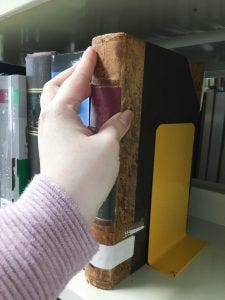Content Spotlight
Podcast: MilliporeSigma says education vital to creating unbreakable chain for sustainability
MilliporeSigma discusses the importance of people, education, and the benefits of embracing discomfort to bolster sustainability efforts.

Merck & Co. has paid Artiva Biotherapeutics $30 million to develop up to three off-the-shelf CAR-NK cell therapies.
On top of the $30 million Artiva has received for the first two programs, an additional $15 million will be paid by Merck (known as MSD outside of North America) if they decide to opt for a third program. Artiva has the potential to receive up to $612 million per program depending on future development, commercial milestones and global sales of the product.
Merck will access Artiva’s allogeneic NK (natural killer) cell manufacturing platform, along with its chimeric antigen receptor (CAR) NK technology to develop therapies targeting solid tumor-associated antigens.

Image: iStock/PinkBattousai
According to Artiva, the platform works by generating allogeneic NK cells from umbilical cord blood (UCB).
“We start with licensed cord blood units that we screen for the right starting properties for an off-the-shelf therapy,” COO Peter Flynn told BioProcess Insider. “We then leverage GC’s large-scale, campaign based GMP manufacturing process, which is capable of producing enough pure and highly active NK cells to treat hundreds to thousands of patients, with the opportunity for repeat dosing, from each cord blood unit.”
Flynn added that NK cells are cryopreserved and ready for off-the-shelf therapeutic use without requiring complex manipulation at the clinical site.
The firm’s corporate partner GC LabCell is based in Seoul, Korea and has developed NK cell therapies for over a decade. Artiva has exclusive access to this technology and GC LabCell’s manufacturing facilities.
While several CAR-T cell therapies have reached the market, these have all been autologous products. Cells must be taken from the patient, engineered, then reintroduced. “The complexity, cost, and significant safety challenges of these therapies could impede their broad adoption,” Flynn told us.
“Unlike approved CAR-T therapies, NK cells can be used in an allogeneic, mismatched setting without induction of graft versus host disease (GVHD). Further, NK cells may have a significantly safer therapeutic profile, compared to the cytokine release syndrome and neurotoxicity seen with CAR-T therapy.”
While he said NK cells are generally difficult to work with – “they don’t expand easily, which is vital for large scale manufacturing, and they are very difficult to freeze while maintaining their activity, which is essential If they’re to be stored for use on demand” – he claimed Artiva’s platform has been developed to overcome such issues.
“Our proprietary, large-scale, campaign-based manufacturing process is capable of producing enough pure and highly active NK cells to treat hundreds to thousands of patients, with the opportunity for repeat dosing, from each UCB. Our NK cells are cryopreserved and ready for off-the-shelf therapeutic use, without the requirement for complex manipulation at the clinical site.”
The firm claims this is a scale that has not been seen before with the NK cell product retaining activity and possibility for on-demand access.
You May Also Like